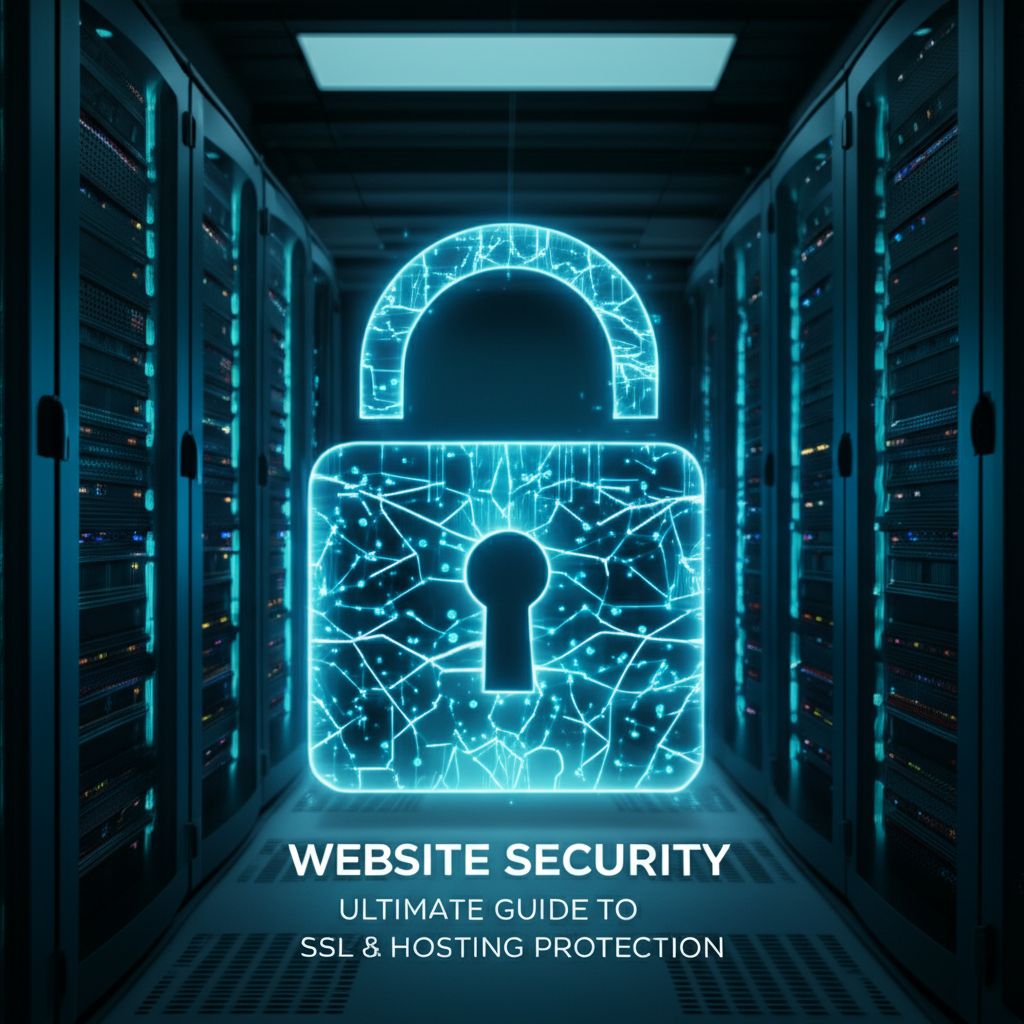- Understanding the Importance of Website Security
- SSL Certificates: The Foundation of Secure Communication
- How SSL Certificates Work
- Types of SSL Certificates
- Choosing the Right SSL Certificate
- Hosting Protection: Securing Your Server Environment
- Key Aspects of Hosting Protection
- Website Security: An Ongoing Process
Website Security: Ultimate Guide to SSL & Hosting Protection
Website security is paramount in today’s digital landscape. A secure website protects sensitive user data, builds trust with visitors, and improves search engine rankings. This comprehensive guide delves into two crucial aspects of website security: SSL certificates and robust hosting protection. Understanding and implementing these measures is essential for safeguarding your online presence and ensuring a positive experience for your users.
Understanding the Importance of Website Security
In an increasingly interconnected world, cyber threats are constantly evolving. From data breaches and malware injections to phishing attacks and denial-of-service disruptions, the risks are real and the consequences can be devastating. A secure website acts as the first line of defense against these threats, protecting both your business and your users.
For businesses, a security breach can lead to financial losses, reputational damage, and legal repercussions. For users, it can mean compromised personal information, identity theft, and a loss of trust. Investing in website security is not just a technical necessity; it’s a crucial business decision that demonstrates a commitment to protecting valuable assets and building a strong, trustworthy online presence.
SSL Certificates: The Foundation of Secure Communication
SSL (Secure Sockets Layer), now technically known as TLS (Transport Layer Security), is the bedrock of secure online communication. An SSL certificate encrypts the data transmitted between a user’s browser and your website server. This encryption prevents malicious actors from intercepting and reading sensitive information like login credentials, credit card details, and personal data.
How SSL Certificates Work
SSL certificates use cryptographic keys to encrypt data. When a user visits a website secured with SSL, their browser initiates a “handshake” with the server. This handshake establishes a secure, encrypted connection. The SSL certificate provides the browser with the necessary information to verify the server’s identity and establish trust.
Types of SSL Certificates
There are several types of SSL certificates, each offering varying levels of validation and security:
Domain Validated (DV) Certificates: These certificates offer the most basic level of validation, simply verifying that the applicant controls the domain name. They are suitable for blogs, personal websites, and small businesses.
Organization Validated (OV) Certificates: OV certificates require a more thorough vetting process, verifying the organization’s identity and legitimacy. They provide a higher level of trust and are suitable for businesses that handle sensitive user data.
Extended Validation (EV) Certificates: EV certificates offer the highest level of validation, requiring extensive verification of the organization’s legal and operational existence. Websites with EV certificates display the organization’s name in the browser’s address bar, providing a clear visual indicator of trust.
Choosing the Right SSL Certificate
Choosing the right SSL certificate depends on your specific needs and budget. While DV certificates are sufficient for basic websites, businesses handling sensitive data should opt for OV or EV certificates to instill greater confidence in their users.
Hosting Protection: Securing Your Server Environment
While SSL certificates encrypt data in transit, robust hosting protection secures your server environment from various threats. A secure hosting environment is crucial for preventing malware infections, data breaches, and other malicious activities.
Key Aspects of Hosting Protection
Firewall Protection: A firewall acts as a barrier between your server and the outside world, filtering incoming and outgoing traffic and blocking malicious requests.
Malware Scanning and Removal: Regular malware scans are essential for detecting and removing any malicious code that may have infiltrated your server.
Intrusion Detection and Prevention Systems (IDPS): IDPS actively monitor network traffic for suspicious activity and automatically take action to prevent intrusions.
Regular Software Updates: Keeping your server software up-to-date is crucial for patching security vulnerabilities and preventing exploits.
Secure Server Configuration: Proper server configuration is essential for minimizing security risks. This includes disabling unnecessary services, restricting access privileges, and implementing strong password policies.
* DDoS Protection: Distributed Denial of Service (DDoS) attacks can overwhelm your server with traffic, rendering your website inaccessible. DDoS protection mitigates these attacks by filtering malicious traffic.
Website Security: An Ongoing Process
Website security is not a one-time fix; it’s an ongoing process that requires constant vigilance and adaptation. Regularly reviewing and updating your security measures is essential for staying ahead of evolving threats and ensuring the continued protection of your website and your users. By prioritizing both SSL certificates and robust hosting protection, you can build a secure online presence that fosters trust and protects your valuable assets. Investing in website security is an investment in the future of your online success.











Leave a Reply